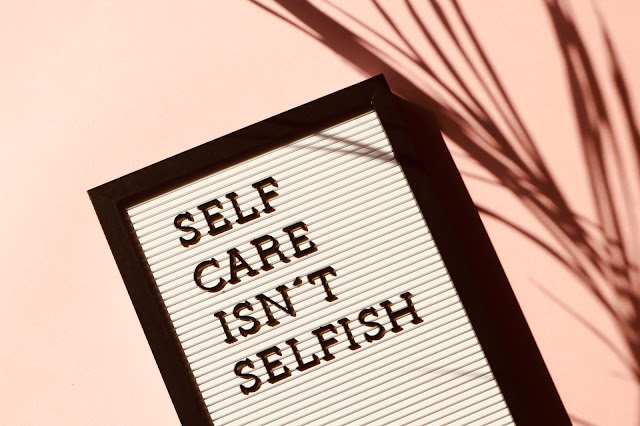How to Increase Self-Esteem
Self-esteem is an important aspect of mental health that refers to one's overall sense of self-worth and value. It is the way we perceive ourselves and how we feel about ourselves, and it can have a significant impact on our mental and emotional well-being. Unfortunately, many people struggle with low self-esteem, which can lead to a range of negative consequences.
Low self-esteem and mental health are closely related, as low self-esteem can contribute to the development of a range of mental health problems. For example, people with low self-esteem may be more prone to depression, anxiety, and other mental health conditions. This is because low self-esteem can lead to negative thoughts and feelings about oneself, which can contribute to feelings of hopelessness, helplessness, and a lack of motivation.
Moreover, low self-esteem can also lead to social isolation and difficulty in forming and maintaining healthy relationships, which can further worsen mental health. In addition, people with low self-esteem
Causes of Low Self-Esteem
Low self-esteem can have many different causes, including both internal and external factors. Some of the most common causes of low self-esteem include:
- Negative Childhood Experiences: Traumatic or negative experiences during childhood, such as abuse, neglect, or bullying, can lead to low self-esteem.
- Unrealistic Expectations: Having unrealistic expectations for oneself, such as perfectionism, can lead to feelings of failure and low self-esteem.
- Social Comparison: Constantly comparing oneself to others, whether it be through social media or in person, can lead to feelings of inadequacy and low self-esteem.
- Societal Pressure: Societal pressure to conform to certain standards of beauty, success, and happiness can lead to low self-esteem if one feels they fall short of these standards.
- Chronic Stress or Trauma: Chronic stress or traumatic events can lead to negative thoughts and feelings about oneself, which can contribute to low self-esteem.
- Genetics: Research suggests that low self-esteem may have a genetic component, meaning it can be inherited from one's parents or other family members.
How to Increase Self-Esteem
While low self-esteem can be a difficult problem to overcome, there are many ways to increase self-esteem and improve one's overall sense of self-worth. Some of the most effective strategies for increasing self-esteem include:
- Positive Self-Talk: Paying attention to the thoughts we have about ourselves and actively replacing negative thoughts with positive ones can help to improve self-esteem.
- Setting Realistic Goals: Setting realistic and achievable goals for oneself can help to build self-confidence and self-esteem.
- Practicing Self-Care: Taking care of oneself, both physically and emotionally, is important for overall well-being and can help to improve self-esteem.
- Engaging in Activities That Bring Joy: Finding activities that one enjoys and that make them feel good can help to improve self-esteem by providing a sense of accomplishment and purpose.
- Seeking Professional Help: If low self-esteem is causing significant distress or impairment, seeking professional help from a therapist, counselor, or other mental health professional can be beneficial.
- Surrounding Oneself With Positive People: Being around positive people can help to improve one's self-esteem by providing a sense of validation and acceptance.
How to Increase Self-Esteem By Positive Self Talk
How to Increase Self-Esteem By Setting Realistic Goals
- Start Small: It's important to start with small, achievable goals that are easy to accomplish. This will help to build momentum and provide a sense of accomplishment, which can boost self-esteem.
- Be Specific: When setting goals, it's important to be specific about what you want to achieve. Instead of saying "I want to be healthier," set a specific goal like "I want to lose 5 pounds in the next month."
- Make A Plan: Once you have set a specific goal, make a plan for how you will achieve it. This can include breaking the goal down into smaller, more manageable steps and setting deadlines for each step.
- Monitor Progress: Regularly monitoring progress and celebrating small wins can help to keep motivation high and self-esteem positive.
- Be Adaptable: Sometimes, even the best-laid plans don’t work out. It's important to be adaptable and adjust your goals as needed. Don’t give up and don’t be hard on yourself, instead, look at this as an opportunity to learn and improve.
- Reflect: Reflecting on the process and the outcome of your goals can help you to learn from the experience and set better goals in the future.
How to Increase Self-Esteem By Practicing Self-Care
- Prioritize Physical Health: Taking care of your physical health through regular exercise, healthy eating, and getting enough sleep is crucial for overall well-being and can help to improve self-esteem.
- Engage In Activities That Bring Joy: Engaging in activities that you enjoy and that make you feel good can help to improve self-esteem by providing a sense of accomplishment and purpose.
- Be Kind To Yourself: Treat yourself with kindness, compassion and forgiveness. Avoid being too hard on yourself and try to see your mistakes as opportunities for growth.
- Practice Mindfulness: Mindfulness practices such as meditation and yoga can help to reduce stress and improve self-awareness, which can help to improve self-esteem.
- Seek Out Positive Social Connections: Surrounding yourself with positive, supportive people can help to improve self-esteem by providing a sense of validation and acceptance.
- Learn To Say No: Saying no to things that do not align with your values or drain your energy can help you to prioritize your own needs and desires, which can improve self-esteem.
- Practice Self-Compassion: Be compassionate and understanding towards yourself. Self-compassion is the act of treating yourself with the same kindness, care and understanding that you would offer to a friend.



Post a Comment